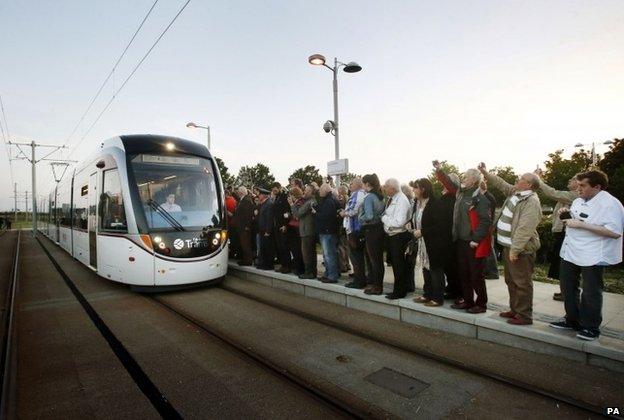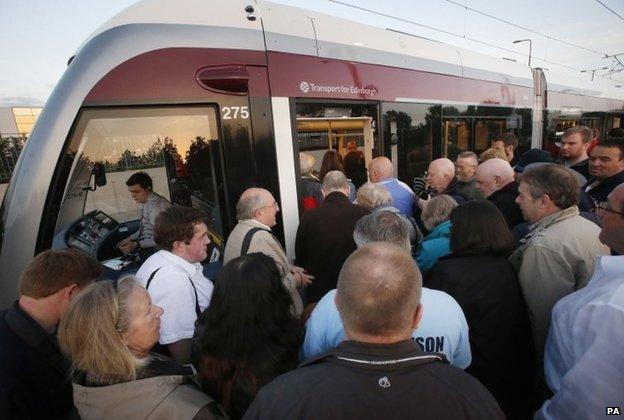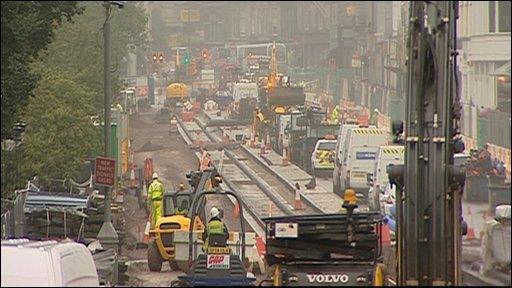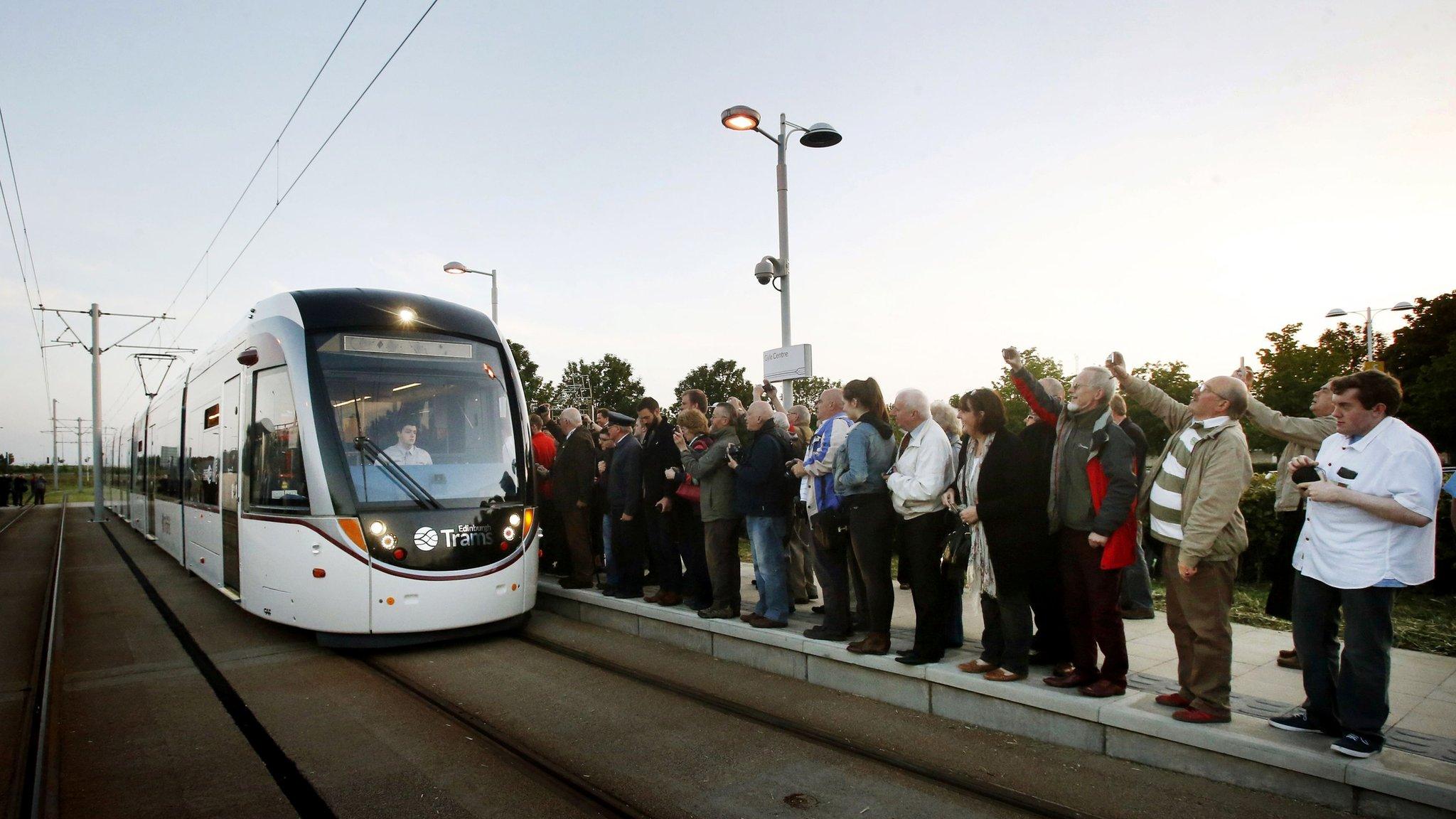Edinburgh trams inquiry given increased powers
- Published

The tram project, which hit cost overruns and delays, is now up and running in Edinburgh
The official inquiry into the Edinburgh trams fiasco has been given increased powers, after some of those involved with the project refused to co-operate.
It has been given "statutory" status by the government in the wake of concerns raised by chairman, Lord Hardie.
The government and the inquiry has not named those who would not co-operate.
Edinburgh's tram service began running in May but only after six years of disruption and a bitter dispute between the city council and its contractor.
The previous Labour-led Scottish government originally earmarked £375m to pay for the tram network, which ended up costing £776m and began running years late.
Deputy First Minister Nicola Sturgeon said a non-statutory inquiry would have delivered swift answers to what went wrong, but added: "Lord Hardie has however now reported a lack of co-operation by some, which is clearly unjustifiable.
"I have therefore given the inquiry the statutory powers he has requested to ensure that the necessary evidence is secured and a robust final report produced."
The disagreement between the arms-length company responsible for bringing the trams to the Scottish capital - Transport Edinburgh Limited - and its contractor Bilfinger Berger, brought the whole project to a halt for months.

The city's trams began carrying passengers in May
TIE chairman David Mackay eventually quit, branding the project "hell on wheels" and described Bilfinger Berger, as a "delinquent company that smelled a victim".
It is understood the German construction giant, which said nothing publicly during the dispute due to contractual restrictions, was also left frustrated by TIE's handling of the project.
The trams inquiry, announced by First Minister Alex Salmond in June, is currently in its preliminary stage, and has been reviewing evidence and identifying potential witnesses.
Lord Hardie, said: "The inquiry was initially non-statutory but was converted to statutory by Scottish ministers following my request, to ensure it can be carried out thoroughly and efficiently and to allow me to produce a comprehensive, fair and balanced report."
Ministers said the inquiry's new statutory status would not increase its costs and the time required to hold it.
- Published30 May 2014

- Published5 June 2014
